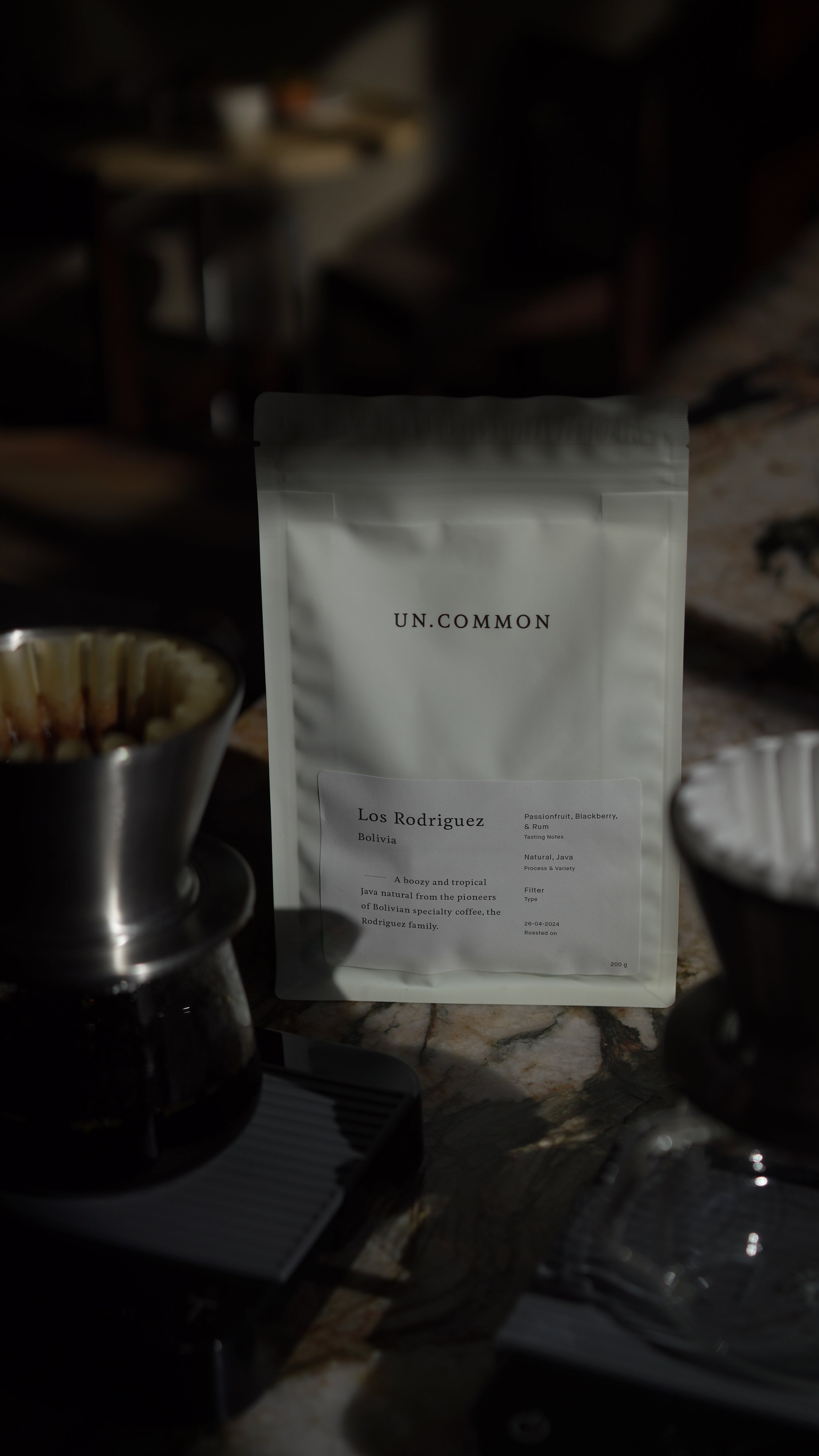
Los Rodriguez - Bolivia - Java - Natural
The cult-favourite Java natural from the pioneers of Bolivian specialty coffee, Fincas Los Rodriguez! The Rodriguez family, headed by Don Pedro and his children Daniela and Pedro Pablo, are spearheading coffee production and export in Bolivia. This Java natural is their most iconic coffee and in our opinion, is the crown jewel. It's sweet, rich, boozy, spicy, but overall is a fruity, juicy coffee with layered tropical and berry fruits. Complex! But in harmony. Expect notes of passionfruit, blackberry, and rum.
Info
Producer
Agricafe was founded by Pedro Rodriguez and is run by himself and his children, Daniela and Pedro Pablo.
Region
Fincas Los Rodriguez have 12 farms in total: 8 in Caranavi and 4 in Samaipata.
Sustainability
The Rodriguez family aim to keep 60% of the land at their farms as nature reserves. The plots themselves are planted amongst the trees as an agroforest.
Elevation
The 10.5 hectare farm sits between two forest-covered mountains, at around 1500masl.
Variety
Java is named so as it was taken from Ethiopia to the island of Java by the Dutch in the early 19th century. Genetic fingerprinting shows it is a selection of the Ethiopian landrace variety Abysinia.
Process
Only fully-ripe cherries are hand picked and then hand sorted. The family believes the dark red and purple cherries produce the best cup. The cherries are then laid to dry on raised beds.
Sol de la Mañana
“The Sol de la Mañana program focuses on improving the production model for small holder farmers in Bolivia, with the goal of creating a more profitable and sustainable future for producing communities.”
The Rodriguez family gained quick success in coffee production back in the early 2010's. They now own 12 farms under the umbrella of 'Fincas Los Rodriguez' and also own their exporting company, Agricafe. Sol de la Mañana came about in 2014 after the family had gained quick success with growing coffee, and 15 neighbouring producers approached Pedro Pablo and asked for help.
“We realized that we had a certain responsibility in not only managing our own farms, but also helping the producers that had been delivering coffee to us for many years. As a family, we saw the responsibility to work against this trend and save Bolivian coffee culture, because if we did not take it, Bolivian coffee would have slowly disappeared. We see this as a duty we owe to Bolivia.” The program works as a kind of 'school for producers' and now reaches over 100 small holder farmers in the Caranavi.


Bolivian Coffee
“In 2020, the annual export of coffee from Bolivia was a lowly 22,000 bags. To put that in perspective, it's roughly half of what one large farm in Brazil could produce in the same time.”
Coffee production in Bolivia is, and always has been, very small. Producing coffee in Bolivia is incredibly difficult as it directly competes with the local coca industry – a plant that is easier to pick, harvests all year round and often yields higher profits for farmers. It is however, dangerous and unsustainable.
This competition, coupled with poor infrastructure, changing climate conditions, roya (leaf rust), and traditional, less sophisticated farming practices, have progressively led to a significant decline in coffee production over the past decade. Unlike other coffee-producing countries like Colombia or Guatemala, Bolivia lacks a strong centralised body that heavily supports and promotes coffee production, further threatening coffee production in the country. Something that is quite thankfully, slowly changing, as Bolivia has some of the most emaculate coffee growing conditions imagineable.
